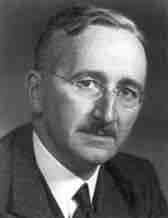Deregulation is the act or process of removing or reducing state regulations. It is therefore the opposite of regulation, which is the process in which the government regulates certain activities. Laissez-faire is an example of a deregulated economic environment in which transactions between private parties are free from government restrictions, tariffs, and subsidies, with only enough regulations to protect property rights. The phrase laissez-faire is French and literally means "let [them] do," broadly implying "let it be" or "leave it alone. "
The rationale for deregulation, as it is often phrased, is that fewer and simpler regulations will lead to a raised level of competitiveness between businesses, which itself will generate higher productivity, higher efficiency and lower prices. The Financial Times Lexicon states that deregulation, in the sense of a substantial easing of government restrictions on industry, is normally justified in order to promote competition.
Opposition to deregulation usually stems from concerns regarding environmental pollution and environmental quality standards, both of which are protected against by certain types of regulations, such as those that limit the ability of businesses to use hazardous materials. Opposition has also stemmed from fears that a free market, without protective regulations, would become financially unstable or controlled by monopolies.
Regulatory reform is a parallel development alongside deregulation. Regulatory reform refers to efforts, by the government, to review regulations with a view towards minimizing them, simplifying them, and making them more cost effective. Such efforts, given impetus by the Regulatory Flexibility Act of 1980, are embodied in the U.S. Office of Management and Budget's Office of Information and Regulatory Affairs, and the United Kingdom's Better Regulation Commission. Cost-benefit analysis is frequently used in such reviews. Another catalyst of reform has been regulatory innovations (such as emissions trading), usually suggested by economists..
Deregulation can be distinguished from privatization, because privatization involves moving state-owned service providers into the private sector.
History
Many industries in the United States became regulated by the federal government in the late 19th and early 20th century. Entry to some markets was restricted to stimulate and protect private companies as they made initial investments into an infrastructure that provided essential public services, such as water, electric and communications utilities. Because the entry of competitors was highly restricted, monopoly situations were created. The government responded by instituting more regulations, this time price and economic controls aimed at protecting the public from these monopolies. Other forms of regulation were motivated by what was seen as the corporate abuse of the public interest by businesses that already existed. This occurred with the railroad industry following the era of the so-called "robber barons". In the first instance, as markets matured to a point where several providers could be financially viable offering similar services, prices determined by that ensuing competition were seen as more economically efficient than those set by the regulatory process. Under these conditions, deregulation became attractive.
One phenomenon that encouraged deregulation was the fact that regulated industries often controlled the government regulatory agencies and used them to serve the industries' interests. Even when regulatory bodies started out functioning independently, a process known as regulatory capture often saw industry interests come to dominate those of the consumer. A similar pattern has been observed within the deregulation process itself, which is often effectively controlled by the regulated industries through lobbying the legislative process. Such political forces, however, exist in many other forms for other special interest groups.
After a several decade hiatus, deregulation gained momentum in the 1970s, influenced by research at the University of Chicago and the theories of Ludwig von Mises, Friedrich von Hayek, and Milton Friedman, among others . Two leading 'think tanks' in Washington, the Brookings Institution and the American Enterprise Institute, were also active, holding seminars and publishing studies that advocated deregulatory initiatives throughout the 1970s and 1980s. Alfred E. Kahn played an unusual role, because he published as an academic and also participated in the Carter Administration's efforts to deregulate transportation.

Friedrich Von Hayek
Austrian economist Friedrich von Hayek, along with University of Chicago economist Milton Friedman are two classic liberal economists attributed with the return of laissez-faire economics and deregulation.
The deregulation movement of the late 20th century had substantial economic effects and engendered substantial controversy.